Bees are an essential part of our ecosystem. They play a crucial role in pollinating plants, which is essential for the growth of crops and other vegetation. Without bees, we wouldn’t have fruits, vegetables, or flowers. Unfortunately, bees are facing many threats to their existence, including habitat loss, pesticide use, and climate change. However, one lesser-known threat to bees is the use of bleach. In this article, we’ll explore the impact of bleach on bees and their habitat.
The impact of bleach on bees
Learn about the impact of bleach on bees and what you can do to protect them.
– Bleach can have harmful effects on bees.
– There are alternative cleaning methods that are safe for bees.
– Tips for protecting bees include planting bee-friendly plants and avoiding the use of pesticides.
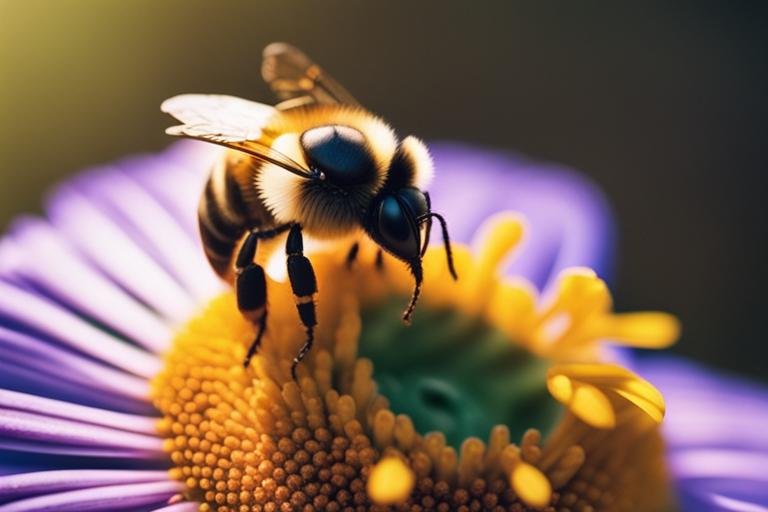
Understanding Bees and Their Importance
A. What are Bees?
Bees are flying insects that belong to the family Apidae. There are more than 20,000 species of bees, and they can be found on every continent except Antarctica. Bees are best known for their role in pollination, but they also produce honey and beeswax, which have many uses.
B. Why are Bees Essential for the Ecosystem?
Bees are essential for the ecosystem because they play a crucial role in pollination. Pollination is the transfer of pollen from the male part of a flower to the female part, which allows the plant to produce fruits and seeds. Without bees, many plants would not be able to reproduce, which would lead to a decline in the number of plants and animals that rely on them for food and habitat.
C. What are the Threats to Bees and Their Habitat?
Bees are facing many threats to their existence. Habitat loss is one of the biggest threats to bees. As urbanization and agriculture expand, natural habitats for bees are destroyed. Pesticide use is another major threat to bees. Pesticides are used to kill insects, but they can also harm bees. Climate change is also affecting bees, as it alters the timing of blooming for plants, which can disrupt the timing of bee pollination.
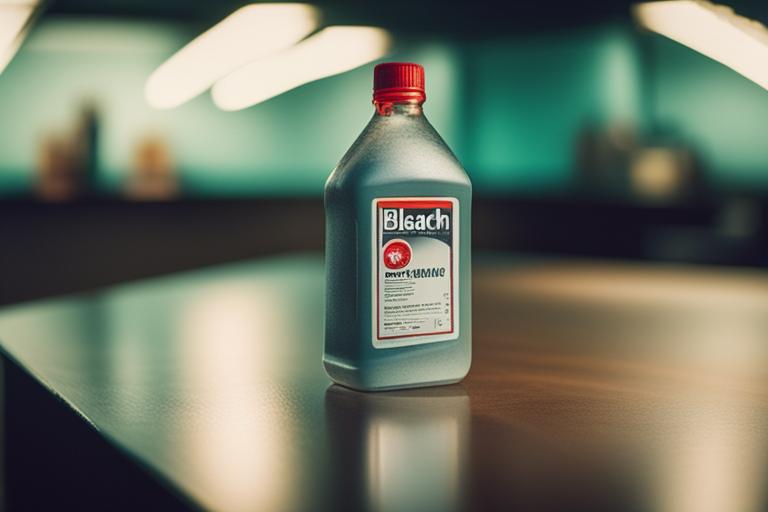
What is Bleach and How it Works
A. Definition and Composition of Bleach
Bleach is a chemical that is commonly used as a cleaning agent. It is a strong oxidizing agent that can break down organic matter, such as dirt and bacteria. The active ingredient in bleach is sodium hypochlorite.
B. Uses of Bleach
Bleach is used for a variety of purposes, including cleaning and disinfecting surfaces, whitening clothes, and removing stains. It is also used in the production of paper and textiles.
C. The Chemical Reaction of Bleach
Bleach works by breaking down the chemical bonds that hold together organic matter, such as dirt and bacteria. When bleach is mixed with water, it forms hypochlorous acid, which is an oxidizing agent. Hypochlorous acid reacts with organic matter, breaking down its chemical bonds and destroying it.
Does Bleach Kill Bees?
A. Overview of How Bleach Can Affect Bees
Bleach can be harmful to bees in several ways. If bees come into contact with bleach directly, it can cause skin and eye irritation, and in severe cases, it can kill them. Additionally, bleach residues on surfaces can be harmful to bees if they come into contact with them.
B. Research Studies on the Effect of Bleach on Bees
Several studies have been conducted on the effect of bleach on bees. One study found that exposure to bleach caused a significant reduction in the lifespan of worker bees. Another study found that bleach residues on flowers can reduce the amount of nectar that bees collect, which can have a negative impact on their health.
C. Can Diluted Bleach be Safe for Bees?
While diluted bleach may be less harmful to bees than concentrated bleach, it can still be harmful if not used properly. If bleach is used to clean surfaces that bees come into contact with, it is essential to ensure that all residues are thoroughly rinsed off before bees return to the area.
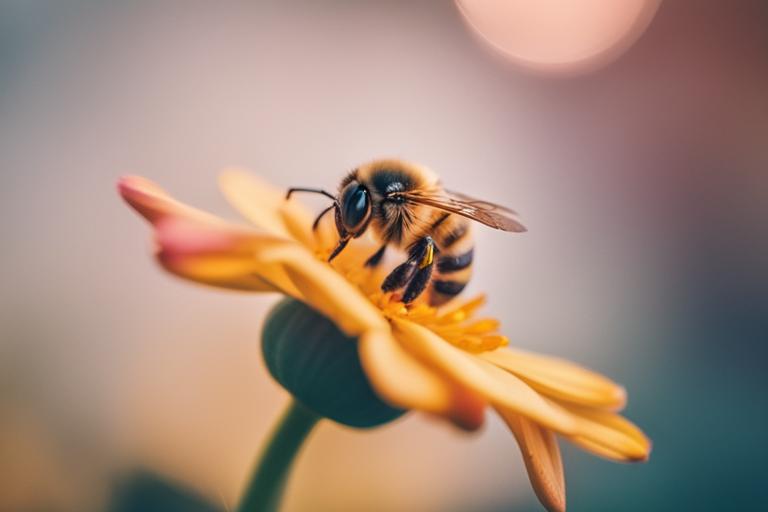
How Bleach Affects Bees and Their Habitat
A. How Bleach Residues Affect Bees
Bleach residues on surfaces, such as flowers and leaves, can be harmful to bees if they come into contact with them. The residues can cause skin and eye irritation, and in severe cases, it can kill them. Additionally, bleach residues can reduce the amount of nectar that bees collect, which can have a negative impact on their health.
B. How Bleach Affects Flowers and Plants
Bleach can also harm plants and flowers. If bleach is used to clean surfaces that bees pollinate, it can kill the beneficial bacteria and fungi that live on the surface of the plant. These microorganisms play a crucial role in helping plants absorb nutrients, and their loss can have a negative impact on plant health.
C. How Bleach Affects Water Sources
Bleach can also affect water sources, which are essential for bees. If bleach is used to clean water sources, it can kill the beneficial bacteria and fungi that live in the water. These microorganisms play a crucial role in helping to purify the water and make it safe for bees to drink.
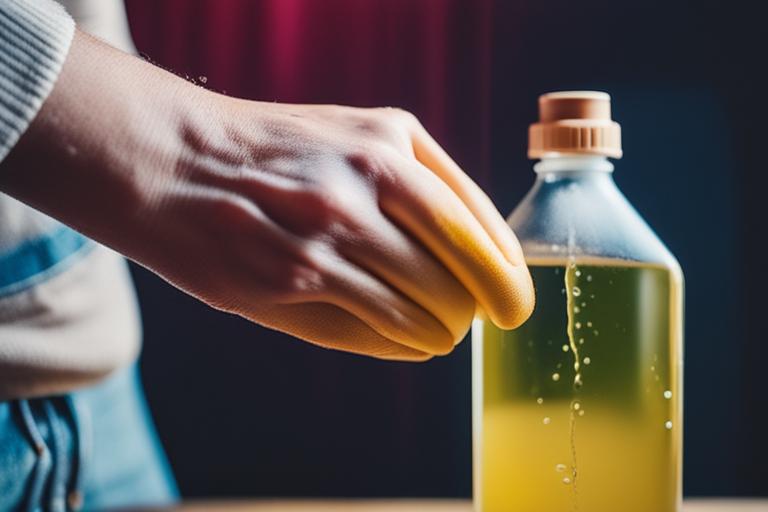
Bee-Friendly Cleaning Alternatives
A. Alternative Cleaning Methods That are Safe for Bees
There are many alternative cleaning methods that are safe for bees. One option is to use natural cleaning agents, such as vinegar and baking soda, which are safe for bees and the environment. Another option is to use bee-friendly cleaning products that are specifically designed to be safe for bees.
B. How to Use Natural Cleaning Agents
Natural cleaning agents, such as vinegar and baking soda, can be used to clean surfaces that bees come into contact with. They can be mixed with water to create a cleaning solution, which can be applied to surfaces using a cloth or spray bottle. It is essential to ensure that all residues are thoroughly rinsed off before bees return to the area.
The Devastating Effects of Bleach on Beekeepers
As a beekeeper, I have seen first-hand the impact of bleach on my bees. Last year, I had a hive that was struggling and I couldn’t figure out why. I had been using bleach to clean my equipment and thought I was doing everything right. However, when I tested the hive, I found high levels of bleach residue.
After doing some research, I learned that bleach can have devastating effects on beekeepers and their bees. Not only can it kill bees directly, but it can also impact their habitat and food sources.
One of the biggest issues with bleach is that it can contaminate water sources. Bees rely on water to survive and if they drink water that has been contaminated with bleach, it can be deadly. Additionally, bleach can impact the plants and flowers that bees rely on for food. When bleach is used to clean surfaces, it can leave behind residue that can harm bees when they come into contact with it.
To avoid these issues, I switched to using natural cleaning agents and methods that are safe for bees. I now use a mixture of vinegar and water to clean my equipment and have noticed a significant improvement in the health of my hives.
As beekeepers, it is our responsibility to protect our bees and their habitat. By using bee-friendly cleaning alternatives and taking steps to protect our bees, we can ensure that they thrive and continue to play a vital role in our ecosystem.
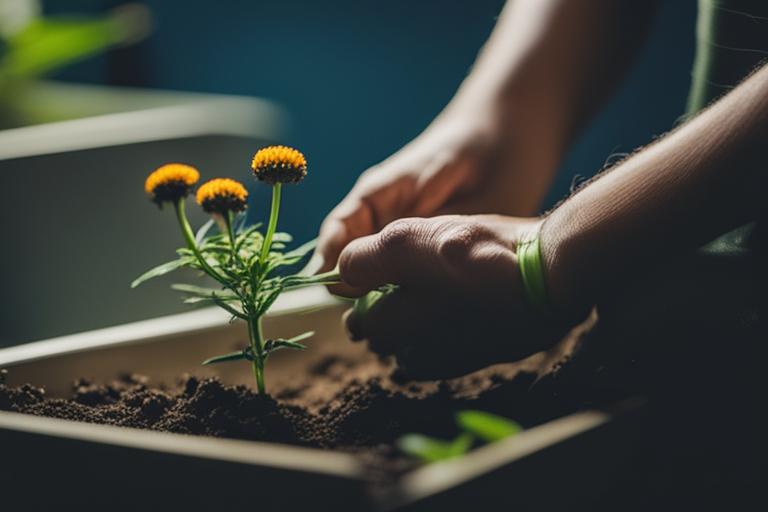
Tips for Protecting Bees
A. Planting Bee-Friendly Plants
Planting bee-friendly plants is a great way to help protect bees. Bees rely on flowers for food, so planting flowers that provide nectar and pollen is essential. Some examples of bee-friendly plants include lavender, sunflowers, and wildflowers.
B. Avoiding the Use of Pesticides
Avoiding the use of pesticides is another way to help protect bees. Pesticides can be harmful to bees, so it is essential to use alternative methods of pest control, such as companion planting and natural predators.
C. Providing a Clean Water Source for Bees
Providing a clean water source for bees is also important. Bees need water to drink, and providing a shallow dish of water with stones or twigs for the bees to land on can help ensure that they have access to clean water.
Myth-Busting:
| Myth | Explanation |
|---|---|
| Bleach can control bee populations. | This is not true. Bleach is harmful to bees and their habitat and should never be used to control bee populations. |
| Bleach can be used as a natural pesticide. | This is also not true. Bleach is not an effective natural pesticide and can be harmful to bees and other beneficial insects. |
| Bees attack people for no reason. | This is a common misconception. Bees typically only sting when they feel threatened or their hive is disturbed. |
| All bees produce honey. | This is not true. While honey bees produce honey, not all species of bees do. |
| Bees can only sting once. | This is only true for honey bees. Other species of bees can sting multiple times. |
Common Misconceptions about Bleach and Bees
A. Overview of Common Myths
There are several common myths about bleach and bees. One myth is that bleach can be used to control bee populations. Another myth is that bleach can be used as a natural pesticide.
B. Debunking Myths
These myths are not true. Bleach should never be used to control bee populations, as it can harm bees and their habitat. Additionally, bleach is not an effective natural pesticide and can be harmful to bees and other beneficial insects.
Conclusion
A. Recap of the Impact of Bleach on Bees and Their Habitat
Bleach can be harmful to bees and their habitat. Bleach residues on surfaces can cause skin and eye irritation and reduce the amount of nectar that bees collect. Bleach can also harm plants and flowers and affect water sources.
B. Importance of Using Bee-Friendly Cleaning Products
Using bee-friendly cleaning products is essential for protecting bees and their habitat. Bee-friendly cleaning products are specifically designed to be safe for bees and the environment.
C. Final Thoughts on the Importance of Protecting Bees
Bees are essential for the ecosystem, and it is crucial to protect them and their habitat. By using bee-friendly cleaning products and taking other steps to protect bees, we can help ensure that they continue to play a vital role in our ecosystem.
Resources for Learning More
A. Websites and Other Resources for Readers to Learn More about Bees and Their Importance
There are many resources available for readers to learn more about bees and their importance. Some websites and other resources include the Xerces Society, the Honey Bee Conservancy, and the Pollinator Partnership.
Follow us!!